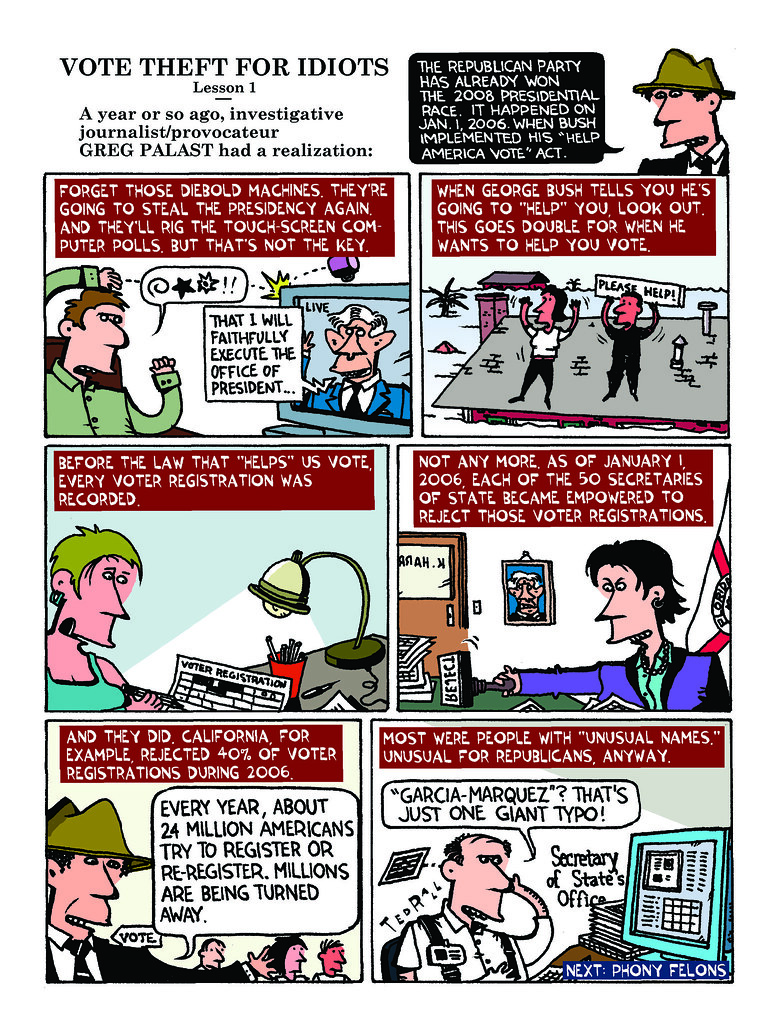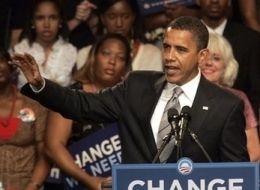On the Road: Grand Junction, Colorado. And the Odds Are...
Twelve to one.
For every twelve voters who you talk to at their doors, one voter goes and votes who would not otherwise have voted. If you're asking: "how can I be most effective in helping my candidate win the election?" then an organizer's answer is going to be: knock on doors.
In a Yale study by Donald Green and Alan Gerber on the effects of doorknocking in local elections, they concluded that a conservative estimate was that "12 successful face-to-face contacts translated into one additional vote."This figure, moreover, is a conservative estimate. When calculating the effects of actual treatment, we regarded any conversation with a member of the household as a "contact." Only about half of these conversations occurred directly with a subject in the treatment group; the remainder involved urging a housemate to vote and requesting that this message be passed along to the intended subject. Had we restricted the definition of contact to direct conversations with the subject, the apparent effects of canvassing would have been much greater.
Although the study aimed at local elections, the principle is sound. Face-to-face contact is the single most important effort a volunteer can contribute to his or her candidate.
Let's do a little math. 12 face-to-face contacts is one new voter who would not have otherwise voted that you personally generated. You just doubled your own vote by speaking at the door to twelve voters. Of course, then it comes down to contact rate -- how often is the person home that you're trying to reach. A very low contact rate is probably 10%, and that happens. A very high contact rate can be 50%. Average is in the 25% ballpark. On average, you'd have to knock on 48 doors to generate 12 face-to-face contacts and one additional vote. 48 doors is a pretty standard, approximate walk list.
So if you go out one four-hour walk shift every weekend between now and the election, you've generated -- on average -- six extra votes from people who would not otherwise have voted for your candidate.
Does it sound paltry? Does it sound difficult? It's what campaigns do. In the aggregate, all that effort is transformative. It is what wins -- or fails to win elections. Organizers face 50 walk-ins a day asking for yard signs, people who politely make excuses as to why this is all they can do. Perhaps for a small handful of these people that is even true. Then the organizer grinds it out seeking people who will fill a shift to go knock on some doors, because every organizer knows 12-to-1.
In Grand Junction yesterday, we spent time tagging along with Obama volunteers doing just that. It was hard going, as many folks weren't home. But the doors were knocked anyway. Just past noon, a gathering of 15-20 volunteers collected in the office to first share their personal stories of why they'd been moved to get involved, and then action strategy unfolded. Morning canvassers returned with their walk sheets, volunteers made calls, and new canvassers went out for an early afternoon shift.
In Glenwood Springs up the road an hour or so, we saw the process repeat. A volunteer named Barclay Lottimer raved about the Obama organizer there, whose program in Garfield County had generated 3,000 knocks the previous weekend and 2,500 knocks so far this weekend when we stopped midday. Garfield had at least 1,000 new Democratic registrants. Summit County has flipped its registration edge from R to D based on the voter reg work spearheaded by Obama's organizers and volunteers. Many Colorado analysts expect Colorado Springs and Boulder to roughly cancel each other out, Denver and suburbs to trend toward Obama, but will McCain hold down Obama's Western Slope gains enough to keep Colorado in the red column?
A note about the McCain campaign. We are working as hard as we can to cover the Republican side of the ground game everywhere we go. We always go to their offices and look for volunteers, organizers, anyone who can tell us what is happening on the ground. But in Colorado on Saturday and Sunday, we found every office but the Cortez office closed. The Durango office was closed on Saturday. The Grand Junction office was closed on Sunday. In Glenwood Springs, Eagle, and Dillon -- where we stopped in at busy Obama offices -- McCain and/or Republican Party offices were either closed or nonexistent.
What we believe is happening here is that the McCain campaign is relying on its highly microtargeted phone calling to run its ground operation on the Western Slope, and that toward the end it will beef up its western ground staff in must-win Colorado. We also infer that the McCain camp is skeptical of Obama's ability to improve on past Democratic performance on the Western Slope, otherwise they'd be working harder. We expect to see more action today and tomorrow along the Front Range.
A couple key factors are at work in Colorado. One is that as the population has grown on the Western Slope, it has become slightly bluer. Witness Durango. Another is the economic impact of oil and natural gas development. When the oil shale industry went from boom to bust in the 70s, Grand Junction and surrounding towns went through a decades-long depression. Republicans have successfully captalized on demonizing environmentalists in this part of the world as the ones responsible for killing natural gas exploration jobs.
Of course, it's a bit more complex than that, given that the insistence on new exploration comes while large acerages of already-leased land goes undeveloped. This is a post, in the end, more about the ground game, and the overall point is that voters here are very sensitive to the economic fortunes of the oil and natural gas industry because that industry drives so many jobs.
Grand Junction will be seeing a visit from at least one if not both McCain and Palin in the near future. That visit has been announced but not definitively shceduled, and of course Barack Obama was here a week ago. Once McCain/Palin visit, one would think the local field office would be open on weekends after that point. John Kerry got crushed in Mesa County, losing 41,539 to 19,564. Obama will not win Mesa -- the largest Western Slope vote concentration -- but if he can use his ground operation to get that 22,000-vote margin down by a third to half, as well as pick up margins in all these surrounding counties where his ground operation is humming along, the big task is going to be motivating voters in Denver to stay in the inevitably huge lines on Election Day.
We're in the Colorado Springs/Denver/Boulder areas today and tomorrow, then a Wednesday race across Nebraska to Omaha and Des Moines. Thanks for the overwhelming response from organizers and their kind and grateful words after yesterday's yard signs post. Some of us really do get it.












